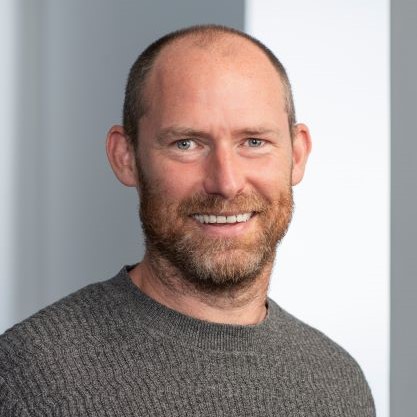
Dr David Comerford
Chancellor'S Fellow - Senior Lecturer
Economics
Back to staff profile
Publications
- An Independent Scotland's Share of UK Public Debt : Accounting for the Legacy of Quantitative Easing
- Comerford David
- (2025)
- Energy Shocks and the Climate Transition
- Comerford David, Spiganti Alessandro
- (2025)
- Can autocracies save climate?
- Comerford David, Dzido Slawomir
- (2025)
- Improvements in beef cattle productivity can increase economy-wide activity and simultaneously reduce greenhouse gas emissions in Scotland
- Allan Grant, Comerford David, Connolly Kevin, McGregor Peter G
- Environment, Development and Sustainability (2025)
- https://doi.org/10.1007/s10668-024-05871-0
- Reshoring of renewable energy manufacturing for regions and smaller nations : an exploration of offshore wind Northern Ireland
- Comerford David, Connolly Kevin, Crummey Ciara
- (2024)
- Could climate policy be conducted through pensions?
- Comerford David, Dzido Slawomir
- (2024)
Back to staff profile
Professional Activities
- Overcapacity as Climate Policy
- Speaker
- 20/1/2026
- Keynote address: 'How Feasible is The Climate Transition?'
- Speaker
- 26/6/2025
- How feasible is the Climate Transition?
- Speaker
- 20/2/2025
- Scottish Journal of Political Economy (Journal)
- Peer reviewer
- 8/2024
- 62nd European Regional Science Association Congress
- Participant
- 31/8/2023
- Investigating the potential for an offshore wind supply chain in Northern Ireland
- Contributor
- 22/6/2023
Projects
- Accounting for (the loss of) Globalisation in the Economics of Climate Change
- Comerford, David (Principal Investigator)
- 01-Jan-2025 - 22-Jan-2026
- Carbon leakage and trade policy
- Figus, Gioele (Principal Investigator) Comerford, David (Co-investigator)
- 01-Jan-2024 - 30-Jan-2027
- Investigating the potential for an offshore wind supply chain in Northern Ireland
- Connolly, Kevin (Principal Investigator) Comerford, David (Co-investigator) Crummey, Ciara (Researcher)
- 01-Jan-2023 - 30-Jan-2023
- NERC One OceanHub
- McGrane, Scott (Co-investigator) Comerford, David (Co-investigator)
- The multidisciplianry One OceanHub project will be a NERC funded programme over 5 years addressing the sustainability of our engagement with the oceans from a range of disciplinary perspectives. Our role is to assess the role of the ocean in national economies, and assess ways that future environmental change my impact economic activities and trade in developing nations.
- 07-Jan-2019 - 31-Jan-2024
- Linking agriculture and eco-system models with CGEs
- Allan, Grant (Principal Investigator) McGregor, Peter (Co-investigator) Comerford, David (Researcher)
- 01-Jan-2016 - 31-Jan-2019
- Supergen Wind Hub
- Leithead, Bill (Principal Investigator) McDonald, Alasdair (Academic) McMillan, David (Academic) Anaya-Lara, Olimpo (Co-investigator) Brennan, Feargal (Co-investigator) McGregor, Peter (Co-investigator) Attya, Ayman (Researcher) Campos-Gaona, David (Researcher) Comerford, David (Researcher) Hur, Sung Ho (Researcher) Stock, Adam (Researcher) Yue, Hong (Researcher)
- "The EU has a binding target of 20% of energy to come from renewables by 2020, with an associated CO2 emissions reduction target of 20% (relative to 1990) and a 20% reduction on energy usage by the same date. This is the so-called 20/20/20 target. The UK's target is for 15% of energy to be sourced from renewables by this date. For this target to be met, over 30% of electricity will need to be generated from renewables and it is anticipated that 31GW of this will come from wind power with 13GW onshore and 18GW offshore by 2020 to 40GW of offshore wind power capacity could be installed by 2030. At present 6GW of wind power have been installed onshore and 3GW offshore. Because of environmental concerns, the development of onshore wind power in the UK is being constrained making the cost-effective and reliable offshore development ever more important. To increase offshore capacity by at least a factor of five in seven years, whilst minimising the cost of energy, presents very significant design, operational and logistical challenges. Within the above context and in the longer term, wind farms and wind turbines will be sited further offshore in deeper water and become bigger.
The proposed Supergen Wind Hub brings together leading wind energy academic research groups in UK to address the medium term challenges of scaling up to multiple wind farms, considering how to better build, operate and maintain multi-GW arrays of wind turbines whilst providing a reliable source of electricity whose characteristics can be effectively integrated into a modern power system such as that in the UK. The wind resource over both short and long terms, the interaction of wakes within a wind farm and the turbine loads and their impact on reliability will all need to be better understood. The layout of the farms, including foundations, impact on radar and power systems and shore-connection issues, will need to be optimised. The most effective and efficient operation of wind farms will require them to act as virtual conventional power plants flexibly responding to the current conditions, the wind turbines' state and operational demands and grid-integration requirements. The programme of research for the Supergen Wind Energy Hub will focus on all of the above, both at the level of single farms and of clusters of farms." - 19-Jan-2014 - 18-Jan-2019
Back to staff profile
Contact
Dr
David
Comerford
Chancellor'S Fellow - Senior Lecturer
Economics
Email: david.comerford@strath.ac.uk
Tel: 548 3861
